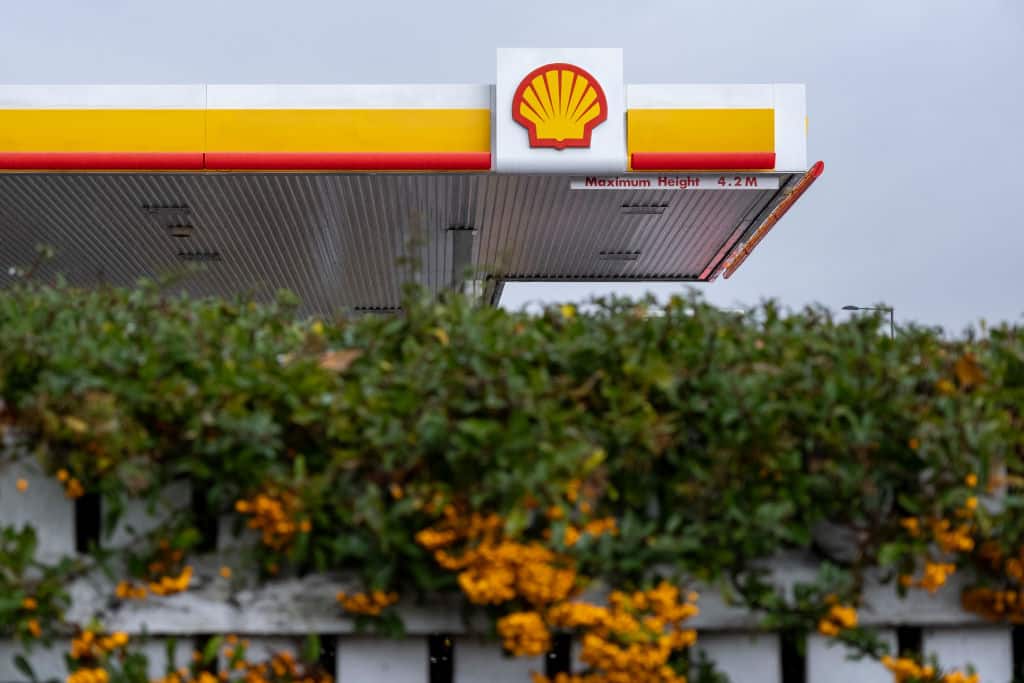TOPLINE
Greenpeace is facing a major new legal threat in the form of a $2.1 million lawsuit from oil giant Shell, multiple outlets reported Thursday, after the environmental advocacy group’s protestors occupied a floating oil platform in January in what one spokesperson called an “unlawful and extremely dangerous” stunt.
Greenpeace activist Yeb Saño holds aloft a flag on a rib after attempting to board a Shell oil … [+]GETTY IMAGES
KEY FACTS
U.K.-based Shell filed a claim against Greenpeace UK and Greenpeace International in London’s High Court alleging the occupation of a floating oil production vessel by protesters earlier this year cost the company money in shipping delays and forced it to hire extra security, Reuters reported.
Shell has asked the court to stop any future protests on the company’s infrastructure at sea or in port, according to the Guardian, and threatened to file further claims on behalf of contractors that could be worth as much as $8.6 million.
Greenpeace has accused Shell of trying to silence any legitimate protests of its fossil fuel operations, but Shell has said the lawsuit is focused only on protests at sea and is designed partly to protect the safety of protesters.
Loading...
A spokesperson for Shell said in an email to Forbes that the protest was “unlawful and extremely dangerous.”
In a statement posted to its website Thursday, Greenpeace called the lawsuit an attempt “to silence growing dissent over moves by Shell’s chief executive” and said Shell has offered to settle for $1.4 million if Greenpeace vows to never again stage a protest “at its infrastructure” at sea or in port.
Greenpeace said it would only comply with the request if Shell “agreed to stop wrecking the climate” and comply with a Dutch court order to reduce its emissions by 45% by 2030.
Greenpeace activists hold a billboard during a protest outside Shell headquarters amid the companies … [+]CHRIS J RATCLIFFE FOR GREENPEACE VIA GETTY IMAGES
Forbes Daily: Get our best stories, exclusive reporting and essential analysis of the day’s news in your inbox every weekday.Sign Up
By signing up, you accept and agree to our Terms of Service (including the class action waiver and arbitration provisions), and you acknowledge our Privacy Statement.
CRUCIAL QUOTE
“The right to protest is fundamental and we respect it absolutely. But it must be done safely and lawfully,” Shell’s statement reads. “Shell and its contractors are entitled to recover the significant costs of responding to Greenpeace’s dangerous actions.”
KEY BACKGROUND
Climate activists used ropes to hoist themselves onto a floating production storage and offloading vessel from inflatable boats they used to chase the Shell ship. The protestors boarded the vessel just north of the Canary Islands and rode it for 13 days, according to Greenpeace. No arrests were made. The vessel was bound for the not-yet-operational Penguins oil and gas field in the North Sea, and protestors were imploring the company to stop drilling for new oil and gas and “instead take responsibility for causing climate breakdown.” The Penguins platform is the first new northern North Sea project for Shell in 30 years and is expected to yield 45,000 barrels of oil per day.
Greenpeace activists hang a banner on July 24, 2014 in front of a Shell gas station in Santiago, … [+]AFP VIA GETTY IMAGES
BIG NUMBER
$39.9 billion. That’s how much money Shell reported in adjusted earnings in 2022, more than double its 2021 profit of $19.29 billion.
TANGENT
This isn’t the first time Shell and Greenpeace have butted heads. The two famously faced off back in 1995 when the oil company, known at the time as Royal Dutch Shell, proposed it would get rid of its decommissioned rig called the Brent Spar by sinking it in the North Atlantic Ocean. Greenpeace activists occupied the tanker for three weeks and organized a boycott of service stations worldwide while claiming the vessel Shell was trying to sink had 5,500 tons of oil on board. The estimate was vastly higher than what Shell claimed and what later proved to be true—Greenpeace ultimately issued an apology. Shell withdrew its plan to sink the Brent Spar. Greenpeace later successfully protested Shell’s 2006 plan to drill for oil in the Arctic. Two years ago, Greenpeace was involved in a failed attempt to stop the company from looking for oil in humpback whale breeding grounds on South Africa’s coast.
Loading...
